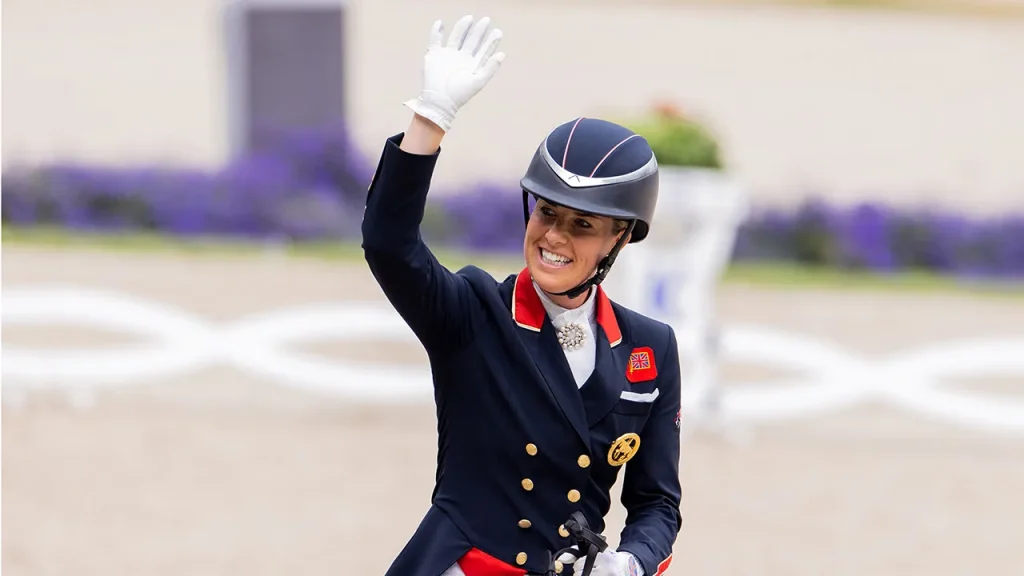Paragraph 1: The Incident and Initial Fallout
Three-time Olympic gold medalist dressage rider Charlotte Dujardin found herself embroiled in controversy just days before the 2024 Paris Olympics when a video surfaced online depicting her repeatedly whipping a horse around its legs. The footage quickly went viral, sparking widespread condemnation and accusations of animal cruelty. Critics argued that Dujardin’s actions were a blatant violation of horse welfare principles, causing unnecessary distress to the animal. Dujardin, facing intense public scrutiny, withdrew from the upcoming Olympic Games and issued a statement acknowledging an "error of judgment." She claimed the video was four years old and taken during a coaching session, attempting to contextualize the incident. However, the explanation did little to quell the mounting criticism, and the International Federation for Equestrian Sports (FEI) launched an official investigation into the matter.
Paragraph 2: The FEI’s Verdict and Dujardin’s Response
Following a thorough investigation, the FEI, the world governing body of equestrian sports, handed down a one-year ban and a fine of 10,000 Swiss Francs to Charlotte Dujardin. The FEI’s decision, announced on Thursday, confirmed the seriousness of the offense and sent a strong message about the importance of horse welfare within the equestrian community. The ban was backdated to the start of Dujardin’s provisional suspension, meaning she would be eligible to compete again in July 2025. Dujardin responded to the verdict with a statement expressing respect for the FEI’s decision and reiterating her apology. She acknowledged the responsibility that comes with her prominent position in the sport and pledged to learn from the experience and strive to do better in the future.
Paragraph 3: Dujardin’s Illustrious Career and Olympic Success
Prior to the controversy, Charlotte Dujardin enjoyed a remarkably successful career in dressage, establishing herself as one of the most decorated riders in the sport’s history. She achieved remarkable success at the Olympic Games, winning three gold medals and two bronze medals across three consecutive Olympics. Her dominance began at the 2012 London Olympics, where she secured gold medals in both the individual and team dressage events. She continued her winning streak at the 2016 Rio Olympics, claiming another gold in the individual competition and a silver in the team event. At the 2020 Tokyo Olympics, Dujardin added two bronze medals to her collection, further solidifying her legacy as a true Olympic champion.
Paragraph 4: The Impact of the Ban on Dujardin’s Career
The one-year ban imposed by the FEI represents a significant setback for Charlotte Dujardin’s career. It not only prevented her from competing in the 2024 Paris Olympics, a pinnacle event for any athlete, but also casts a shadow over her future prospects in the sport. The ban effectively sidelines her for a significant period, disrupting her training regimen and competitive momentum. While Dujardin has expressed remorse and a commitment to improving, the long-term consequences of the incident remain to be seen. Her return to competition in 2025 will undoubtedly be met with heightened scrutiny, and she will need to demonstrate a genuine commitment to horse welfare to regain the trust of the equestrian community and the public.
Paragraph 5: The Broader Implications for Equestrian Sport
The Dujardin case highlights the ongoing debate surrounding horse welfare within equestrian sports. While proponents emphasize the deep bond between horse and rider and the rigorous training involved, critics argue that the competitive nature of the sport can sometimes lead to practices that prioritize performance over animal well-being. The incident has reignited discussions about the use of whips and other training methods, prompting calls for stricter regulations and greater oversight to ensure the ethical treatment of horses. The FEI’s decision to impose a significant ban on a high-profile athlete like Dujardin sends a clear message that animal welfare violations will not be tolerated, regardless of an individual’s achievements or standing within the sport.
Paragraph 6: The Path Forward for Dujardin and the Sport
The coming year will be a crucial period for Charlotte Dujardin as she navigates the consequences of her actions and prepares for her eventual return to competition. She will need to demonstrate a genuine commitment to reforming her training methods and prioritizing horse welfare to regain the trust and respect of the equestrian community. Beyond Dujardin’s individual case, the incident serves as a catalyst for broader reflection within the sport. The equestrian community must engage in open and honest dialogue about horse welfare, striving to establish clearer guidelines and stricter enforcement mechanisms to ensure the ethical treatment of these magnificent animals. Ultimately, the future of equestrian sport depends on striking a delicate balance between the pursuit of athletic excellence and the unwavering commitment to the well-being of the horses that make it all possible.

